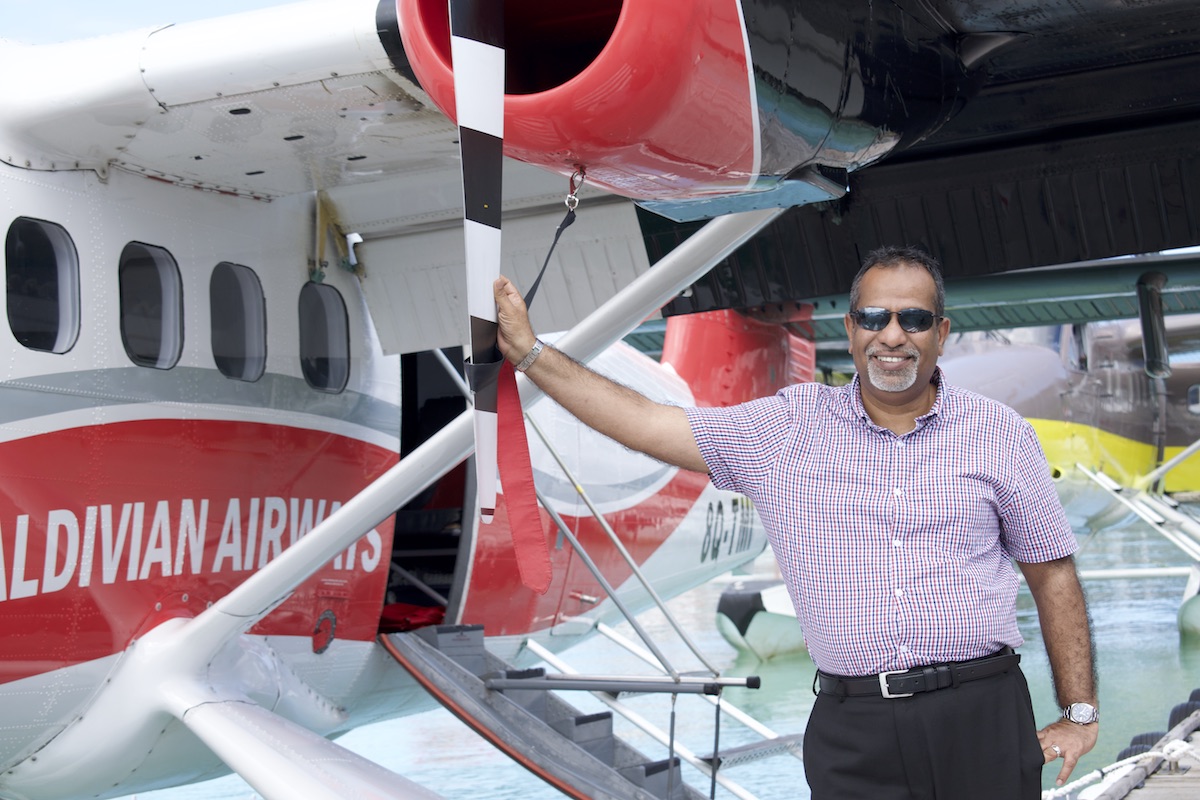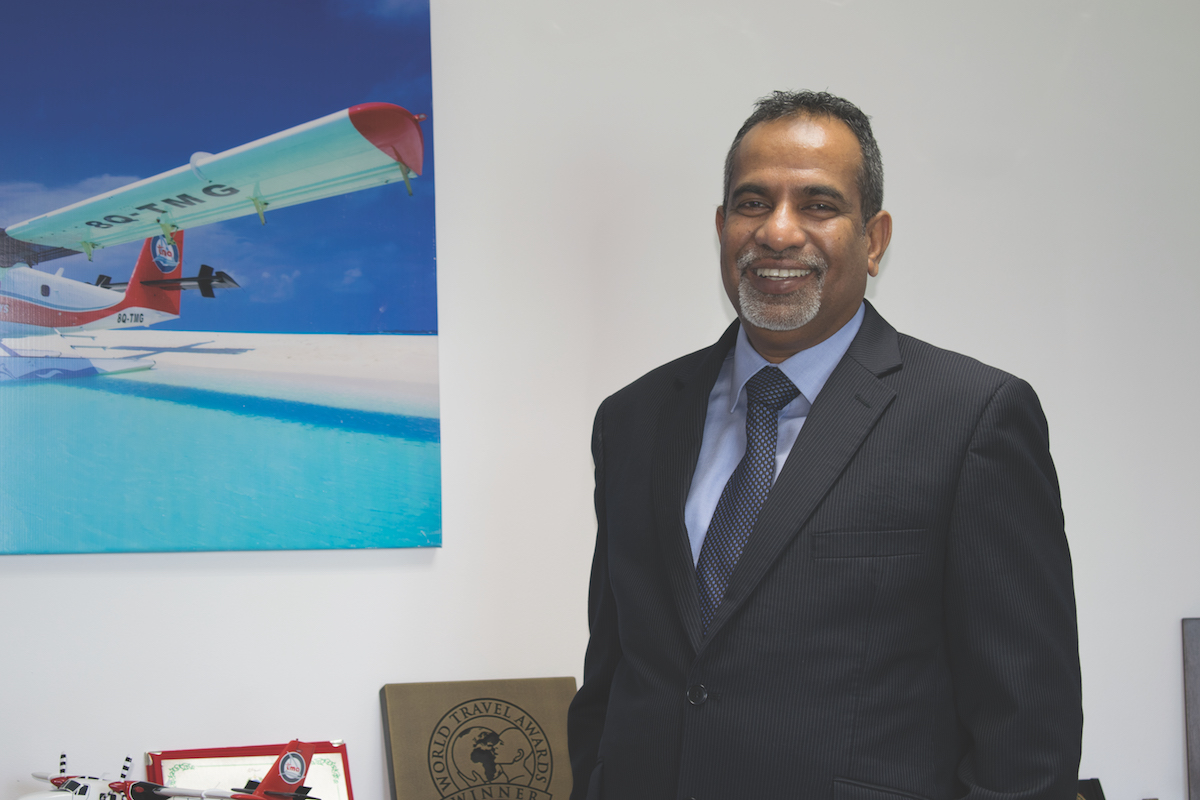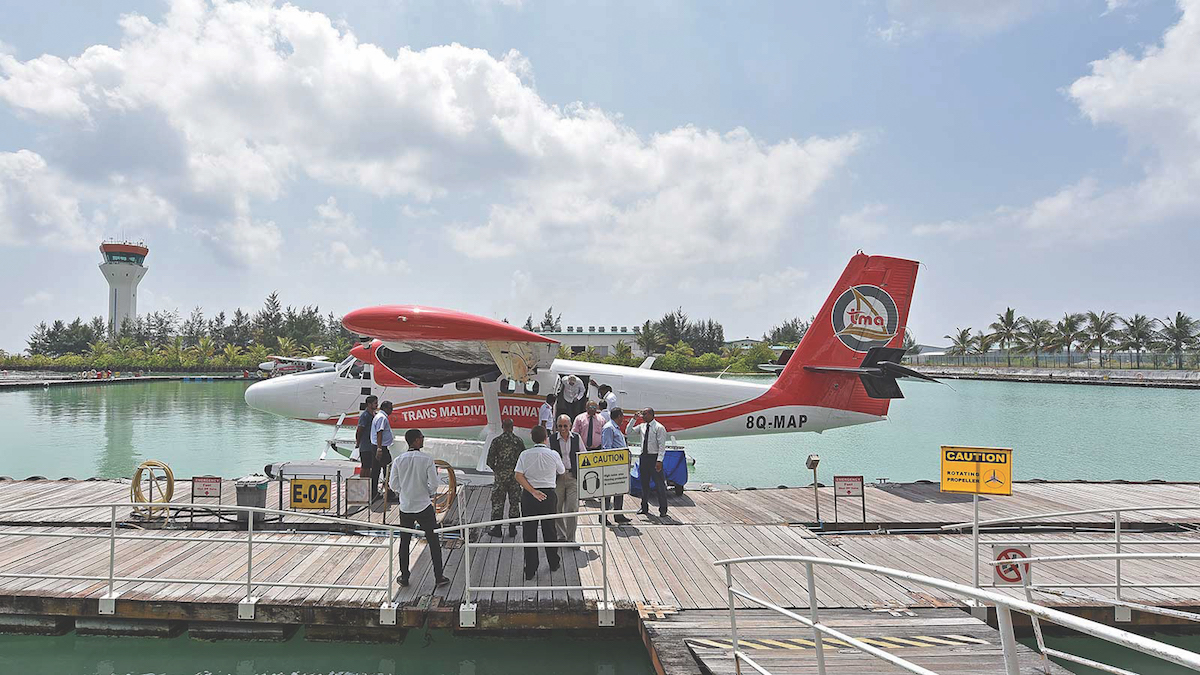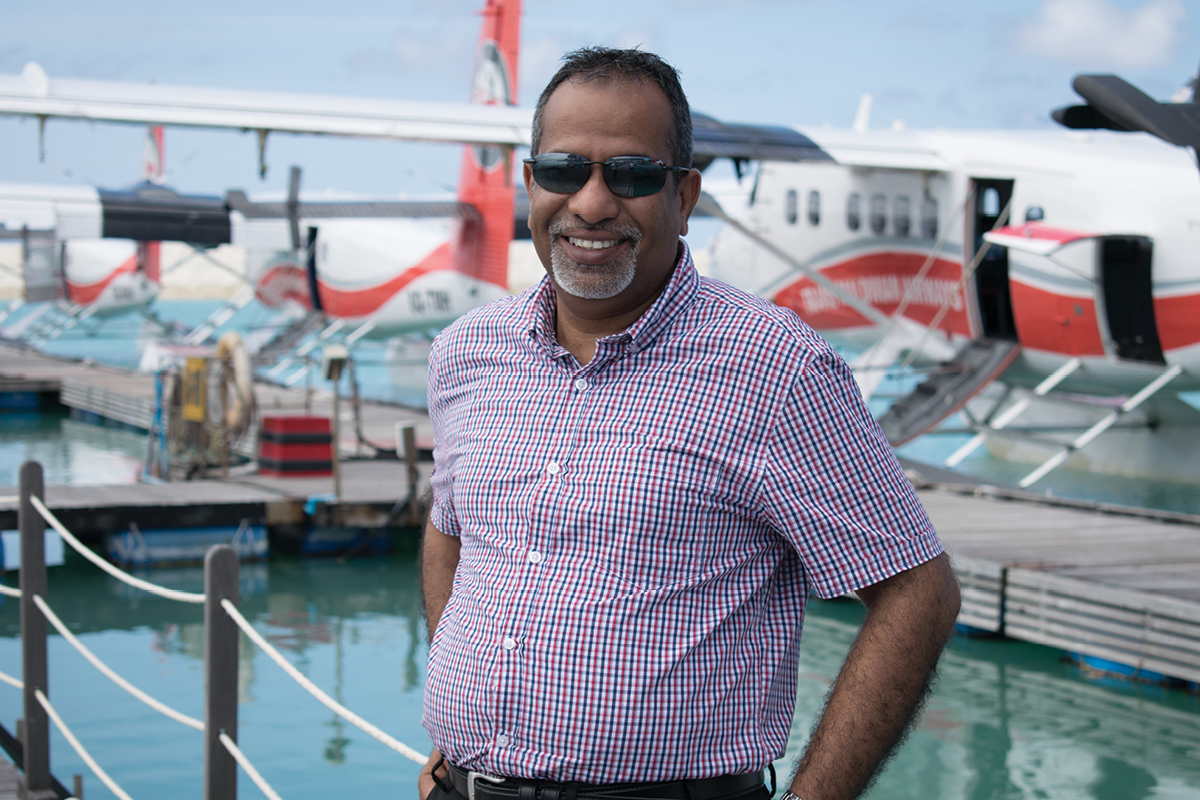The Maldives is a constellation of exotic islands, dotted with stunning resorts. Of course, they are not all a stone’s throw from the capital Male, where the international airport is located. So what’s the next step for the swarm of tourists converging on the holiday hotspot? You hop on a seaplane and you are set down on your island of choice directly outside your resort.
Back in the early 70s when the first resorts started popping up, they were all built within close proximity to the Male atoll. This was because boats were the only island-hopping mode of transport, and guests were loath to spend hours upon hours battling seasickness. To explore this opportunity, helicopters were initially used to reduce the travel times to the resort destinations.
However, soon seaplanes were launched, and that was the beginning of a beautiful journey for Trans Maldivian Airways (TMA). This initiative changed the very landscape of tourism in the Maldives, as vacationers could now fly quickly, and in comfort, to any one of the thousands of islands that make up the nation.
For AUM Fawzy, the sky’s the limit
Indeed, without the hard work of the TMA team, many of the islands that now provide luxury stays might have still been undeveloped. “A boat transfer is only really feasible up to 30 nautical miles, because people do not want to travel in a boat for eight or nine hours,” current CEO AUM Fawzy says.
“If people had to always endure a long and uncomfortable boat trip to reach their island accommodation, the Maldives as a tourist destination wouldn’t have taken off. However, thanks to the ease with which people can now be transferred between islands, more resorts are opening up every year. I think in 2016 alone, around 10 new places were established.”

We basically became the infrastructure of Maldivian tourism.
TMA has become the largest seaplane operator in the world, transferring more than one million passengers via 120,000 flights a year, and those numbers continue to rise. Fawzy first linked up with TMA as its head of finance when the fleet consisted of just two seaplanes, known locally as air taxis. The Sri Lankan national saw limitless potential beyond the modest operation.
“I saw the company growing. When I joined, we had only two aircraft and started by serving just four passengers; however, I knew the Maldives – with its 1,192 islands all scattered around – would be perfectly suited to the seaplane environment,” he explains.
“We made sure that as the number of resorts increased, we too increased the number of aircraft. As a result, we basically became the infrastructure of Maldivian tourism. If the seaplanes weren’t there, tourism would not have gone beyond Male. And although we are a private company, not a government company, people trusted the way we contributed indirectly towards the growth of the nation’s GDP.”
Trans Maldivian Airways is the lifeblood of the Maldives
Fawzy attributes this remarkable success to the business model. “We have exclusive contracts with more than 60 resorts, which is around 80% of the resorts within the seaplane zone,” he says.
“Once a room is booked and the details are sent to us, we take responsibility for transfer, including an assurance that we’ll transfer the passenger within two hours of check-in. We make the administration easy: for the resort, for the tour operators, and for the passengers; it’s all very easy and convenient. They just book, then board a plane at the airport and are dropped at the doorstep of the resort. We’re the first and last impression of the Maldives for the tourist, so we make sure that we do it right!”
We’re the first and last impression for tourists, so we make sure we do it right.
TMA continues to expand its operation as resorts keep sprouting up all over the Maldives. “Right now, we have 48 aircraft in our fleet, and by the end of this year we will increase by another two. Then over the next six years, I think we’ll definitely have 60 or more aircraft here. It’s going to be a big challenge, but we will manage it.”
As much as TMA is the lifeblood of the Maldives, the company also relies on Maldivian tourism to continue to boom. Fortunately for the seaplane charter company, the islands of milky-white, warm sands and pellucid turquoise shallows continue to attract thousands of visitors every month.
International expansion on the cards
TMA is also considering expanding its operations as interest from international parties emerges. “I cannot mention the name of the country, but we are also looking to expand outside the Maldives,” Fawzy reveals. “We’ve been invited by the heads of states to visit their countries and discuss options and explore seaplane operation in their respective countries. So we are certainly exploring future prospects.”

Interestingly, those prospects aren’t limited to island nations. “If there are lakes, we can land,” he explains. “Most countries have interior lakes, and we can land basically wherever there is water. We don’t need a lot of water to land. That’s the beauty of our operation: our planes don’t need to land at airports. So it becomes a better method of transport in many places, especially countries that may not have the greatest infrastructure but still attract high-end tourists.”
So highly regarded is TMA that representatives of the company are regularly asked to provide counsel for prospective seaplane start-ups. “Today, we are a success story, and many companies wanting to start a seaplane operation, whether that’s in China, Sri Lanka, the UAE, or even India, come and talk to us,” he says proudly.
“Those who want to start a similar operation are often referred on to us. That just shows the success of our operation and the respect we have gained within the industry. At the time that tourism in the Maldives was burgeoning, we had what we called a ‘blue ocean strategy’. There was not much competition, the ocean was blue, there was no blood in the water. So we have been very lucky. We were in the right place at the right time.
“But you need to continue to evolve, and I believe we have done that really well. We haven’t been complacent; we’ve kept up with the latest trends and listened to what our customers want.”
VIP planes provide added luxury
TMA identified early on that customers wanted the seaplane experience to be more than a transport service, and for their holiday to begin at the TMA terminal. The company has now taken this commitment to service a step further by unveiling a line of VIP planes. “We cater to all the best brands in the Maldives. Our top-end passengers and celebrities want that added luxury, so we now have VIP planes,” he explains.

“The VIP planes have only eight to 10 seats and are taken as a charter. And we provide air-conditioning in-flight too, for added comfort. We also have VIP lounges, which are lavish spaces for our guests to enjoy while they wait to board.” Recruiting the best talent is vital to TMA’s operations, and that extends all the way to the pilots. Fawzy understands the challenges enough to be in awe of the company’s aviators.
“Flying these aircraft is not easy. Everything is done manually in our planes. Our pilots take off, land, and negotiate rough weather. They really have to be on the ball because they control every aspect,” he says. “They are safe and they look very professional. Moreover, they give the tourists the feeling that they are already in paradise, that their holiday starts at our base.”
“Not many people can say they work in paradise.”
Fawzy has guided TMA with aplomb since Blackstone became the company’s majority shareholder in 2013. “I’ve really enjoyed the journey. I’ve been with the company since 1995, and it has seen so much wonderful success,” he says. “Every year, we are increasing the size of the fleet and the number of aircraft, and that comes back to the people behind the business. There’s no doubt they are our most important asset.
“I can say work has become my passion, and that’s because of this beautiful place and the people. I came to the Maldives in 1990 for a holiday and couldn’t help but move here in 1995 for good. Not many people can say they work in paradise.”
Over the past 25 years or more, TMA has strived to improve connectivity in the island nation and at the same time provide a memorable travel experience to all its passengers. The company has played a pivotal role in not only the growth of tourism in the Maldives but also, in the process, enabled the economic development of the country. One of the major reasons for TMA’s success is also the everlasting support from the government of the Maldives and its resort partners and tour operators.
Along its journey, TMA has won many accolades, including the ‘World’s Leading Seaplane Operator’ and ‘Indian Ocean’s Leading Seaplane Operator’, which proves its dedication to safety, security and foremost customer satisfaction. Moving ahead, TMA strives to continue its journey and contribute to the growth of the Maldives.



